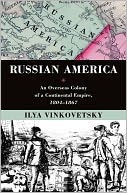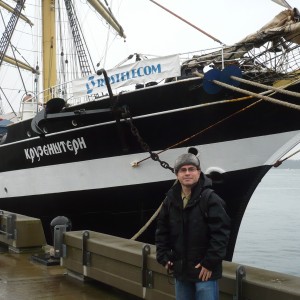Book by Vinkovetsky ’88 Explores 19th-Century Alaska under Russian Rule

From 1741 until Alaska was sold to the United States in 1867, the Russian empire claimed territory and peoples in North America. In his new book, Russian America: An Overseas Colony of a Continental Empire, 1804–1867 (Oxford University Press), Ilya Vinkovetsky ’88, an assistant professor of history at Simon Fraser University, examines how Russia governed its only overseas colony. Russian America was effectively transformed from a remote extension of Russia’s Siberian frontier penetrated mainly by Siberianized Russians into an ostensibly modern overseas colony operated by Europeanized Russians.
Under the rule of the Russian-American Company, the colony was governed on different terms than the rest of the empire, a hybrid of elements carried over from Siberia and imported from rival colonial systems. Its economic, labor, and social organization reflected Russian hopes for Alaska, as well as the numerous limitations, such as its vast territory and pressures from its multiethnic residents, it imposed.

This approach was particularly evident in Russian strategies to convert the indigenous peoples of Russian America into loyal subjects of the Russian Empire. The author looks closely at Russian efforts to acculturate the native peoples, including attempts to predispose them to be more open to the Russian political and cultural influence through trade and Russian Orthodox Christianity.
This is the first book published by Oxford University Press on Alaska’s Russian colonial period since James R. Gibson’s groundbreaking Imperial Russia in Frontier America, which came out in the 1970s.
Vinkovestsky says: “My interest in history was fostered at Wesleyan, where I was a history major and took many courses in American and Russian history and also several courses in cultural anthropology. Wesleyan’s history program of the 1980s was an excellent preparation for graduate study in the field.”
“I took memorable history courses with Richard Buel, Philip Pomper, Donald Meyer, Richard Elphick, Ann Wightman, Ronald Schatz, and Vera Schwarcz. I am grateful to them all, and in particular, to Richard Buel, who persuaded me to write a senior thesis, which he also supervised.
“I am also grateful to James Gutmann, my geology professor at Wesleyan, who urged me to do something important with my life. Although this book is not what he had in mind, Jim Gutmann’s admonition struck a chord, and I made an effort to heed his advice—to a degree.”

